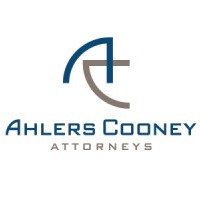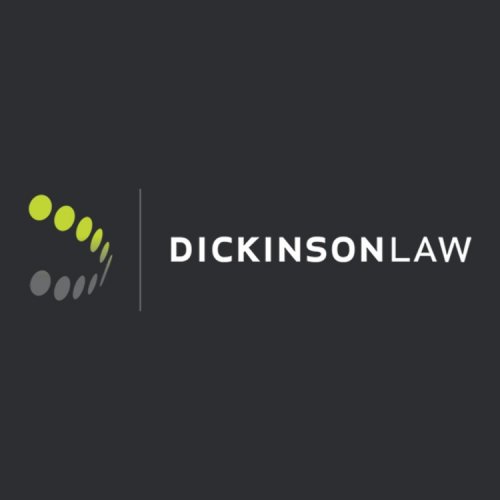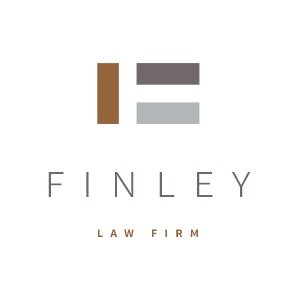Best Financial Services Regulation Lawyers in Des Moines
Share your needs with us, get contacted by law firms.
Free. Takes 2 min.
List of the best lawyers in Des Moines, United States
About Financial Services Regulation Law in Des Moines, United States
Financial Services Regulation in Des Moines, Iowa, involves a complex array of federal and state laws that oversee financial institutions and their operations. These regulations are designed to maintain the integrity of financial services, protect consumers, and ensure the stability of the financial system. In Des Moines, a hub for insurance and financial services companies, regulation plays a critical role in sustaining the city's economy and ensuring compliance with national laws such as the Dodd-Frank Act and state-specific regulations enforced by the Iowa Insurance Division and the Iowa Division of Banking.
Why You May Need a Lawyer
There are numerous scenarios where individuals or businesses might require legal assistance in the field of Financial Services Regulation. Firstly, financial institutions may need help navigating the complex web of compliance requirements in order to avoid penalties and legal issues. Businesses might seek legal advice to ensure their financial offerings align with regulatory standards. Individuals facing disputes with financial institutions-such as disagreements over terms of loans or investments-may also need legal representation. Additionally, those working in compliance within financial firms might consult lawyers when dealing with new regulatory developments.
Local Laws Overview
Des Moines is subject to both federal and state regulations governing financial services. The Iowa Insurance Division is pivotal in overseeing insurance operations, while the Iowa Division of Banking regulates state-chartered banks and other financial entities. Key aspects include consumer protection standards, mandatory reporting requirements, licensing and registration processes, and adherence to both federal mandates (such as those from the Securities and Exchange Commission) and state-level regulations. Regular audits and compliance checks ensure that financial entities meet these rigorous standards.
Frequently Asked Questions
What are the main regulatory bodies in Des Moines for financial services?
The Iowa Insurance Division and the Iowa Division of Banking are the primary state regulatory bodies. At the federal level, agencies like the Securities and Exchange Commission (SEC) and the Consumer Financial Protection Bureau (CFPB) have jurisdiction.
What types of financial institutions are regulated in Des Moines?
Regulated institutions include banks, credit unions, insurance companies, investment firms, and other financial service providers operating within Iowa.
How does the Dodd-Frank Act affect financial services in Des Moines?
The Dodd-Frank Act strengthens regulation and supervision of financial markets and consumer protection. Its implications affect numerous entities within Des Moines, particularly those dealing with derivatives and consumer financial products.
What are compliance requirements for financial institutions in Des Moines?
Compliance requirements include adhering to consumer protection laws, maintaining adequate financial reserves, reporting financial conditions, and ensuring fair lending practices, among others.
How do I know if my financial service provider is compliant?
You can verify the compliance status of a provider by checking with the Iowa Division of Banking or the Iowa Insurance Division, where registered entities are monitored for adherence to regulations.
Can individuals file a complaint against a financial institution?
Yes, individuals can file complaints with the Iowa Division of Banking or the Iowa Insurance Division if they believe a financial institution has violated regulations.
What penalties can financial institutions face for non-compliance?
Penalties can include fines, license revocation, and in severe cases, criminal charges against company executives. Non-compliance can also lead to reputational damage.
Are there specific laws for financial advisors in Des Moines?
Yes, financial advisors must follow the regulations outlined by the Iowa Insurance Division and other relevant state and federal bodies, including standards for transparency and fiduciary duty.
What should I do if I suspect financial fraud?
If you suspect fraud, it is crucial to report it immediately to the Iowa Insurance Division, the Iowa Division of Banking, or federal authorities like the SEC. Legal consultation can also help determine further steps.
How often do regulatory changes occur?
Regulations can change frequently due to economic shifts, legislative amendments, or updates by regulatory entities. It's important to stay informed, especially within financial institutions, to ensure compliance.
Additional Resources
Several resources can assist individuals and businesses seeking guidance in Financial Services Regulation:
- Iowa Insurance Division: Ensures compliance and consumer protection in insurance-related matters.
- Iowa Division of Banking: Provides oversight to state-chartered financial institutions.
- U.S. Securities and Exchange Commission: Enforces federal laws governing securities.
- Consumer Financial Protection Bureau: Offers protection to consumers in financial services.
- Iowa Financial Authority: Provides assistance regarding housing and financial education.
Next Steps
If you require legal assistance in Financial Services Regulation, consider contacting a qualified lawyer with experience in financial law. Look for professionals who are knowledgeable about both federal and state regulations affecting Des Moines. Initial consultations can help you understand your legal position and potential strategies for addressing regulatory challenges or personal financial disputes. Don't hesitate to reach out to local legal aid organizations for recommendations or to gain a better understanding of the services available to you.
Lawzana helps you find the best lawyers and law firms in Des Moines through a curated and pre-screened list of qualified legal professionals. Our platform offers rankings and detailed profiles of attorneys and law firms, allowing you to compare based on practice areas, including Financial Services Regulation, experience, and client feedback.
Each profile includes a description of the firm's areas of practice, client reviews, team members and partners, year of establishment, spoken languages, office locations, contact information, social media presence, and any published articles or resources. Most firms on our platform speak English and are experienced in both local and international legal matters.
Get a quote from top-rated law firms in Des Moines, United States — quickly, securely, and without unnecessary hassle.
Disclaimer:
The information provided on this page is for general informational purposes only and does not constitute legal advice. While we strive to ensure the accuracy and relevance of the content, legal information may change over time, and interpretations of the law can vary. You should always consult with a qualified legal professional for advice specific to your situation.
We disclaim all liability for actions taken or not taken based on the content of this page. If you believe any information is incorrect or outdated, please contact us, and we will review and update it where appropriate.















